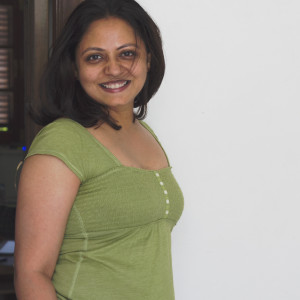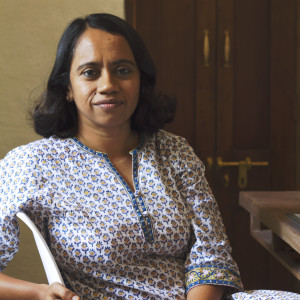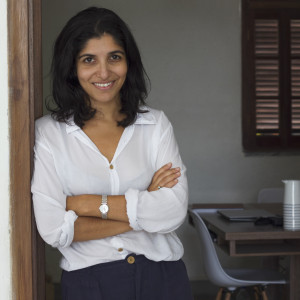A way ahead for words: Juggernaut
(I interviewed Chiki Sarkar and Durga Raghunath, co-founders of Juggernaut. As Chiki put it across so well, “Durga is part of the change and I am part of the continuity. The combo of us would be magic. She is the creative mind of business and I am the business side of creativity.” This interview was conducted with a face-to-face meeting with Chiki Sarkar at her office and with Durga, over the phone. It was published in the Hindu Sunday Magazine digitally on 3 Oct 2015 and in print on 4 Oct 2015. Here is the url to the link: http://www.thehindu.com/books/literary-review/chiki-sarkar-and-durga-raghunath-talk-about-juggernaut-with-jaya-bhattacharji-rose/article7720019.ece?utm_source=RSS_Feed&utm_medium=RSS&utm_campaign=RSS_Syndication )
The recently launched publishing firm, Juggernaut, hopes to take on the big players in the field. Its co-founders Chiki Sarkar and Durga Raghunath talk about what’s in store.
The key investors in Juggernaut are Nandan Nilekani, William Bissell and Neeraj Aggarwal. Chiki Sarkar, previously publisher of Penguin India and founder-publisher of Random House India, has worked with every major writer in the country. Durga Raghunath, previously CEO, Network 18 Digital, led three news websites, a fin-tech site and mobile. She is also the founder of India’s first exclusively digital newsroom, Firstpost. Excerpts from an interview.
What is the focus of Juggernaut? What are the genres it will be publishing?
Chiki Sarkar: Our behaviour is the same as that of any great publisher but asking bold questions on the digital side.
Durga Raghunath: The good thing about mobile content is you cannot ignore your consumer. It has to be both short story and all genres that keep people coming back for, such as crime fiction and romance. These have to be very compelling reads. A beginner list will have a variety and also new authors to attract the committed book lover and the new reader — a young mobile user.
Who are the authors you will be publishing?
CS&DR: We cannot say. It will be announced early next year.
What kind of manuscripts are you seeking?
CS: The ebooks we publish will be between 20,000 and 40,000 words.
DR: The length is overrated in book publishing. In non-fiction there are enough opportunities for things to be much shorter, so you will see different lengths — 5,000 to 15,000 words.
According to media reports, Juggernaut will explore phone book publishing. For what generation of phones will these be created?
DR: We will be catering to the Android and iOS platforms and targeting the top 10-12 devices. The smartphone devices market in India is approximately 159 million; we will target 10-12 million users in India. It will initially be in English moving to the vernacular in a few months. About 25 million people read news in India. Apparently 120 million have 3G on their phones. It implies you have to own a decent smartphone to be able to access it.
The user experience will be very unique. We will retain the consumer delight, but offer a lot more aided by technology. There are a lot of ways in which the internet can considerably reduce the gap between author and reader. It will be a confluence of various things. About 100 million people who transact on their mobile phones have given their credit and debit card details. People will not pay for news but will pay for books — a combination of information and knowledge. Also, Indian behaviour for digital consumption shows they are ready to pay and buy online as long as the price point is correct.
Who is Juggernaut’s customer?
 DR: In India we have an overwritten book market. The big thrill is to change the market. Big publishers are not to be feared. We will publish in the vernacular too. Some of the rich textured literature exists in the local languages. Hence, Sivapriya is a critical part of the team. We have three to four editors taking vernacular publishing. It will be big play for us. It will be about democratisation of publishing. It cannot be the privy of five big houses anymore, and to enable that we must have vernacular publishing. The idea is to launch a new language list every year.
DR: In India we have an overwritten book market. The big thrill is to change the market. Big publishers are not to be feared. We will publish in the vernacular too. Some of the rich textured literature exists in the local languages. Hence, Sivapriya is a critical part of the team. We have three to four editors taking vernacular publishing. It will be big play for us. It will be about democratisation of publishing. It cannot be the privy of five big houses anymore, and to enable that we must have vernacular publishing. The idea is to launch a new language list every year.
How many books do you hope to publish in one year? Will all the paper books have a digital life? If so, will this also be true of all the ebooks published?
CS: Every book will have a digital life.
DR: The super set will be mobile and phone book publishing. The subset will be physical with an initial list of 50 titles per year. A lot of surprises will be in the app, available also on the web.
What is the technology and product strategy at Juggernaut?
DR: The central mantra at Juggernaut is to give an author the best digital and physical platform, while inspiring the consumer to read and write. Given this is India, we will be extremely price sensitive. How can I get new users? How can I make it worth their while? The retention plan will always make the customer feel that Juggernaut has given them five times more than what they had expected. The relationship between the publisher and the author will be clearly redefined.
What is the publishing expertise and services that authors and readers can expect from Juggernaut which make it stand apart from traditional publishers?
DR: We will create custom formats similar to what Amazon did with Kindle. We will create .jug files. You cannot do these things cheaply, hence the focused funding exercise. There will be absolutely no shortcuts to anything.
CS&DR: The information will be super secure. We are investing in a secure DRM.
Book start-up markets are brutal. Many appear to fulfil an immediate need, usually work as a catalyst and then disappear. Even well-funded business have folded up as markets are saturated, margins wafer thin and consumption intense. What are the challenges that Juggernaut sees in the Indian market?
DR: The Internet has created a certain behaviour. We are at that point, at the cusp, when people will give Juggernaut a shot by saying, “I will sample it.”
There will be many challenges in the future but we have been unable to focus on any since we have more solutions than problems right now.
3 October 2015









